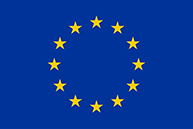About the project
CRISEA has the following objectives:
- To study the multiple forces affecting regional integration in Southeast Asia and the challenges they present to the peoples of SEA and its regional framework ASEAN
- To reach beyond academia to engage in public debate and impact on practitioners in government and non-government spheres
- To reinforce the European Research Area (ERA) through coordinated EU-ASEAN academic exchange and network development
WP3. The Economy: Competing Models and Practices of Capitalism
Participants: Professor Hege M. Knutsen, ISS, and postdoctoral fellow at SUM, Arve Hansen
The University of Malaya in collaboration with partners will study whether the ‘uneven development trap', ensnaring the labour force in precarious circulatory migration and undermining social stability, can erode SEA states' models of developmental capitalism and the regional integration model of ASEAN.
WP4. The State: Contesting Liberal Democracy
Participant: Professor Kristian Stokke, ISS
The University of Cambridge, the Vietnam Academy of Social Sciences, and partners will analyse the forces that nowadays contest the liberal State within and beyond the region, asking whether they herald a new era for SEA, where governance is openly legitimized by group interests that challenge the liberal values central to ASEAN's political model.
Financing
This project has received funding from the European Union’s Horizon 2020 research and innovation programme under grant agreement No 770562.
Project period
November 2017 - October 2020
Cooperation
- Ecole française d’Extrême-Orient (EFEO), associating expertise from National Foundation for Political Science (Sciences Po), Centre for Southeast Asia (CASE) and IRD (France)
- University of Cambridge (Cambridge), Department of Politics & International Studies with expertise at the Faculty of History (United Kingdom)
- University of Hamburg (UHAM), Asien-Afrika-Institut; and associating expertise from the policy institute, German Institute of Global and Area Studies (GIGA) (Germany)
- University of Lisbon (ISCSP), Institute of Social & Political Sciences (Portugal), which brings its association with the Universidade Nacional de Timor Lorosa’e in Dili, Timor-Leste
- University of Lodz (UL), Department of Asian Studies at the Faculty of International and Political Studies (UL-DAS) (Poland)
- University of Naples l’Orientale (UNO), Department of Human & Social Sciences (Italy)
- Ateneo de Manila University (ADMU), Development Studies Program and Department of Economics (Philippines)
- Centre for Strategic and International Studies (CSIS), Department of Politics and International Relations and Department of Economics (Indonesia)
- Chiang Mai University (CMU), Regional Center for Social Science and Sustainable Development (Thailand)
- University of Malaya (UM) Centre for Poverty and Development Studies and the Faculty of Economics and Administration (Malaysia)
- University of Mandalay (MU), Department of International Relations (Myanmar)
- Vietnam Academy of Social Sciences (VASS), Institute for European Studies and Institute of Cultural Studies (Vietnam)
For more information about the project please visit the website of the project.


